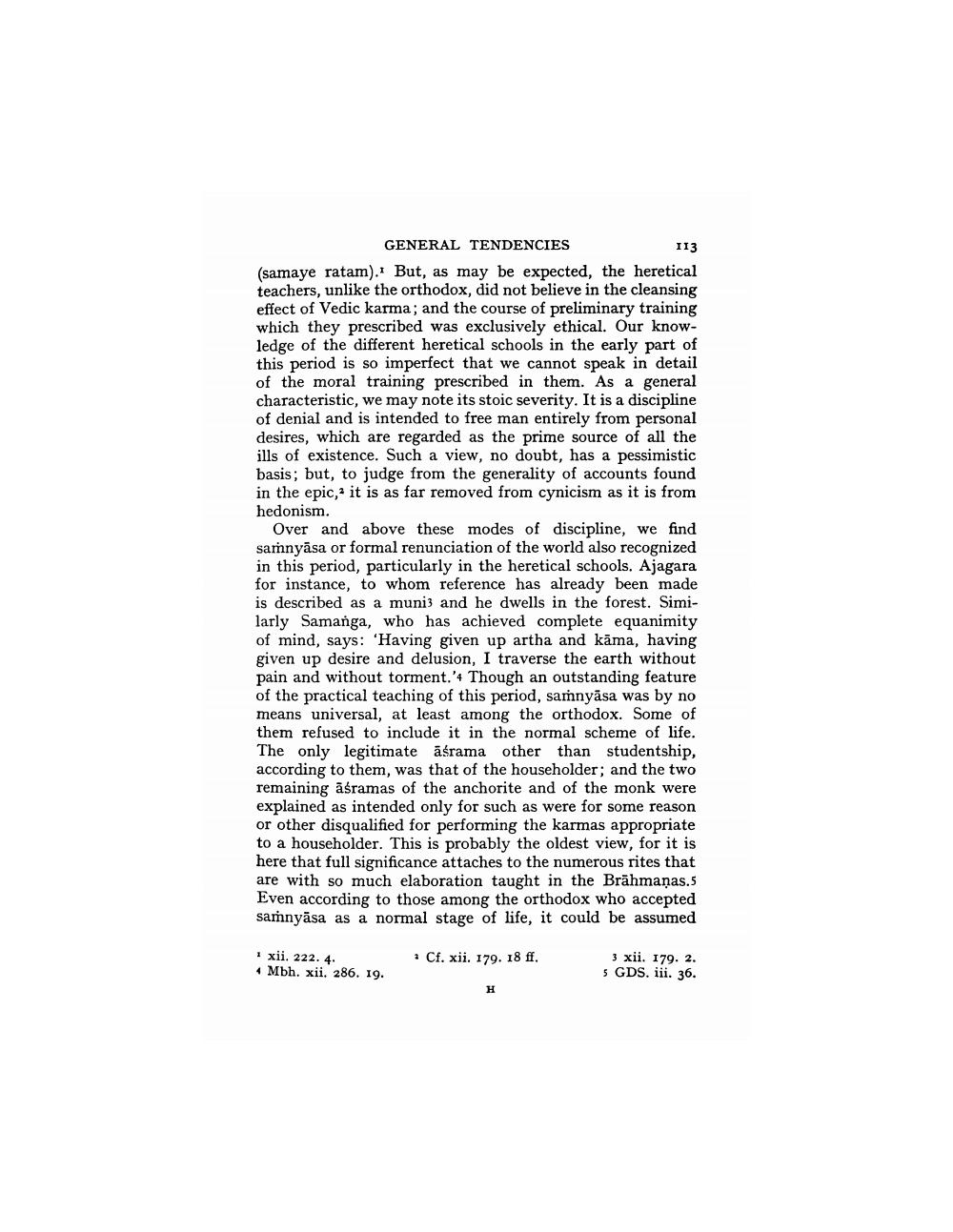________________
GENERAL TENDENCIES
113 (samaye ratam). But, as may be expected, the heretical teachers, unlike the orthodox, did not believe in the cleansing effect of Vedic karma; and the course of preliminary training which they prescribed was exclusively ethical. Our knowledge of the different heretical schools in the early part of this period is so imperfect that we cannot speak in detail of the moral training prescribed in them. As a general characteristic, we may note its stoic severity. It is a discipline of denial and is intended to free man entirely from personal desires, which are regarded as the prime source of all the ills of existence. Such a view, no doubt, has a pessimistic basis; but, to judge from the generality of accounts found in the epic, it is as far removed from cynicism as it is from hedonism.
Over and above these modes of discipline, we find samnyāsa or formal renunciation of the world also recognized in this period, particularly in the heretical schools. Ajagara for instance, to whom reference has already been made is described as a muniz and he dwells in the forest. Similarly Samanga, who has achieved complete equanimity of mind, says: 'Having given up artha and kāma, having given up desire and delusion, I traverse the earth without pain and without torment.'4 Though an outstanding feature of the practical teaching of this period, samnyāsa was by no means universal, at least among the orthodox. Some of them refused to include it in the normal scheme of life. The only legitimate āśrama other than studentship, according to them, was that of the householder; and the two remaining asramas of the anchorite and of the monk were explained as intended only for such as were for some reason or other disqualified for performing the karmas appropriate to a householder. This is probably the oldest view, for it is here that full significance attaches to the numerous rites that are with so much elaboration taught in the Brāhmaṇas.5 Even according to those among the orthodox who accepted samnyāsa as a normal stage of life, it could be assumed
xii. 222.4. Mbh. xii. 286. 19.
Cf. xii. 179. 18 ff.
3 xii. 179. 2. 5 GDS. iii. 36.




